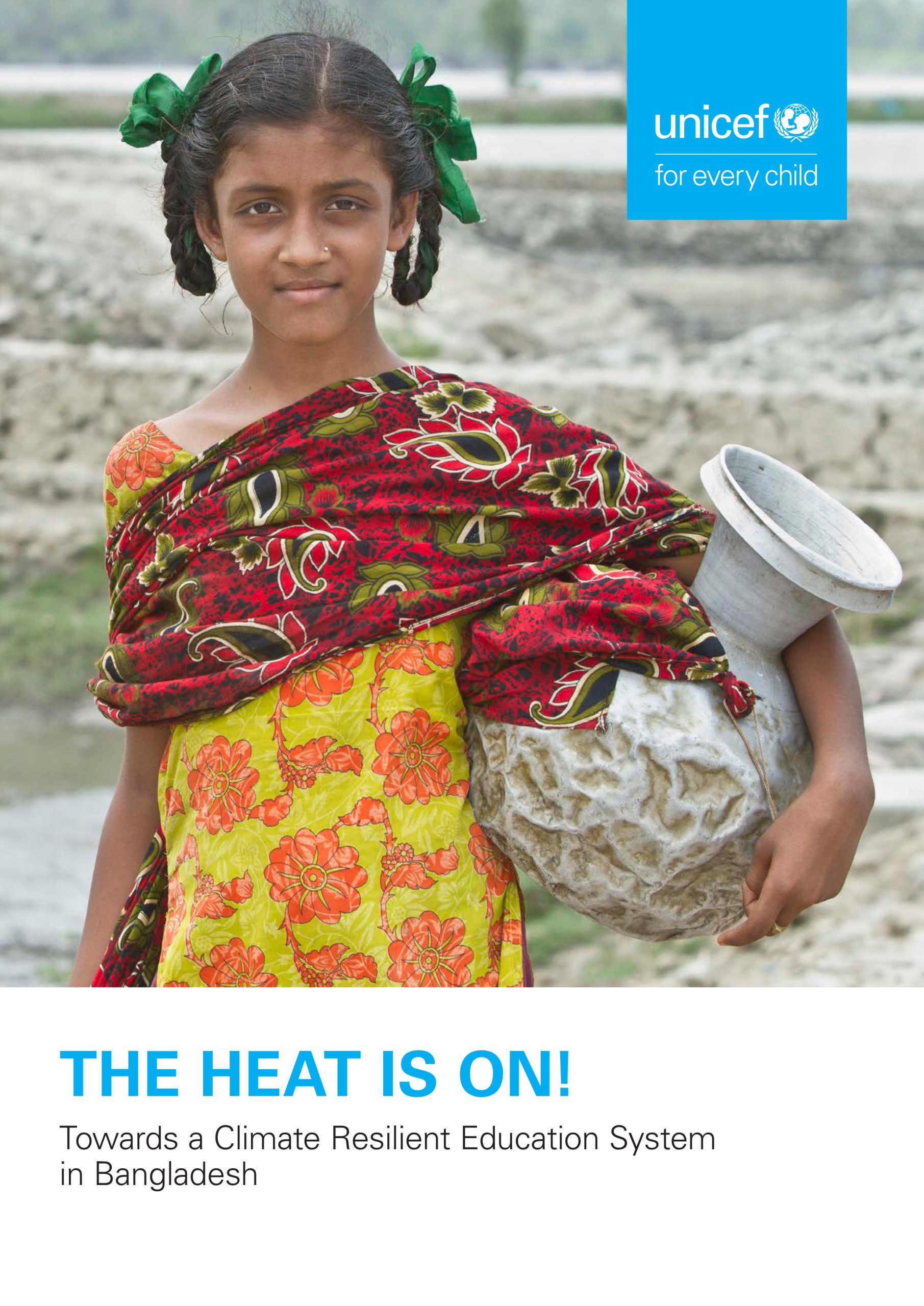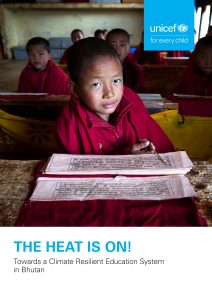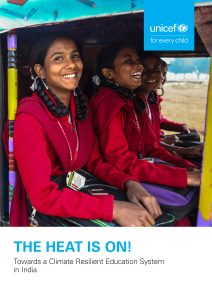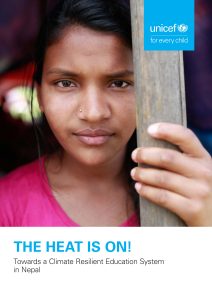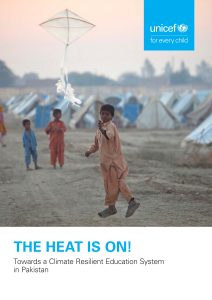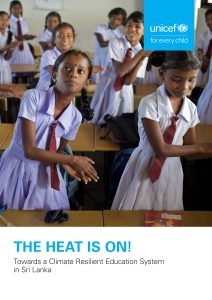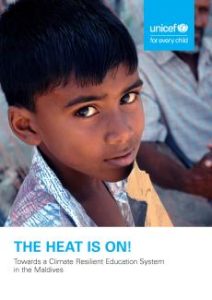Fumiyo Kagawa completed a 2020-2021 UNICEF Regional Office for South Asia (ROSA) study on the impacts of climate change on education systems in the South Asian region as well as educational system responses to climate change. The countries covered are: Afghanistan, Bangladesh, Bhutan, India, Nepal, the Maldives, Pakistan, Sri Lanka.
South Asia is already grappling with serious impacts of climate change. Children are particularly vulnerable through its effects on their health, nutrition, livelihood, education among others. If the current trends continue, key social sectors, land areas and ecosystems in the region will be further severely affected by climate change, reducing possibilities for human and social systems to effectively adapt to its effects.
While the education sector is highly vulnerable to the direct and indirect impacts of climate change, it can play a critical role in advancing international and national efforts to address the impacts of climate change on children and their communities and to accelerate climate mitigation and adaptation actions.
The overall aim of the study are:
- To generate evidence on how education systems in the countries of South Asia (i.e., Afghanistan, Bangladesh, Bhutan, India, the Maldives, Nepal, Pakistan and Sri Lanka) are monitoring, assessing and responding to the impacts of climate change.
- To identify the main educational tools and mechanisms being employed in planning for and addressing climate risks.
- To showcase the perceptions of key education sector stakeholders regarding further embedding climate change considerations and concerns into education tools and mechanisms.
Arising from this research is The Heat is On! publication series and the Rising to the Challenge series.
The Heat is On! publication series involves country reports, a regional synthesis report and a reflection, dialogue and progress tool for the use of ministries of education and their partners.
Drawing upon desk-based documentary reviews, national stakeholder surveys, school-level focus group discussions and U-Report data, each country report examines direct and indirect impacts of climate change on the education system, in terms of learning facilities, access to education, student health and wellbeing, education provision and learning quality. Each country report explores seven key education system components (i.e. Policies, Plans, Strategies; Finance; Curriculum, Teaching and Learning; Teacher Capacity Development; Communication, Coordination and Partnership; School/Community Student Participation Platforms; Monitoring, Evaluation and Accountability) and provides country-specific recommendations aimed at making the education system more resilient and empowering students to become agents of change in the face of increasing climate change risks. The report is intended to stimulate discussion and action on the part of key stakeholders with respect to educational planning, financing, research, program development and advocacy.
The following country-specific education system analysis reports are available online:
• The Heat is On!: Towards a Climate Resilient Education System in Bangladesh
• The Heat is On!: Towards a Climate Resilient Education System in Bhutan
• The Heat is On!: Towards a Climate Resilient Education System in India
• The Heat is On!: Towards a Climate Resilient Education System in the Maldives
• The Heat is On! Towards a Climate Resilient Education System in Nepal
• The Heat is On!: Towards a Climate Resilient Education System in Pakistan
• The Heat is On!: Towards a Climate Resilient Education System in Sri Lanka
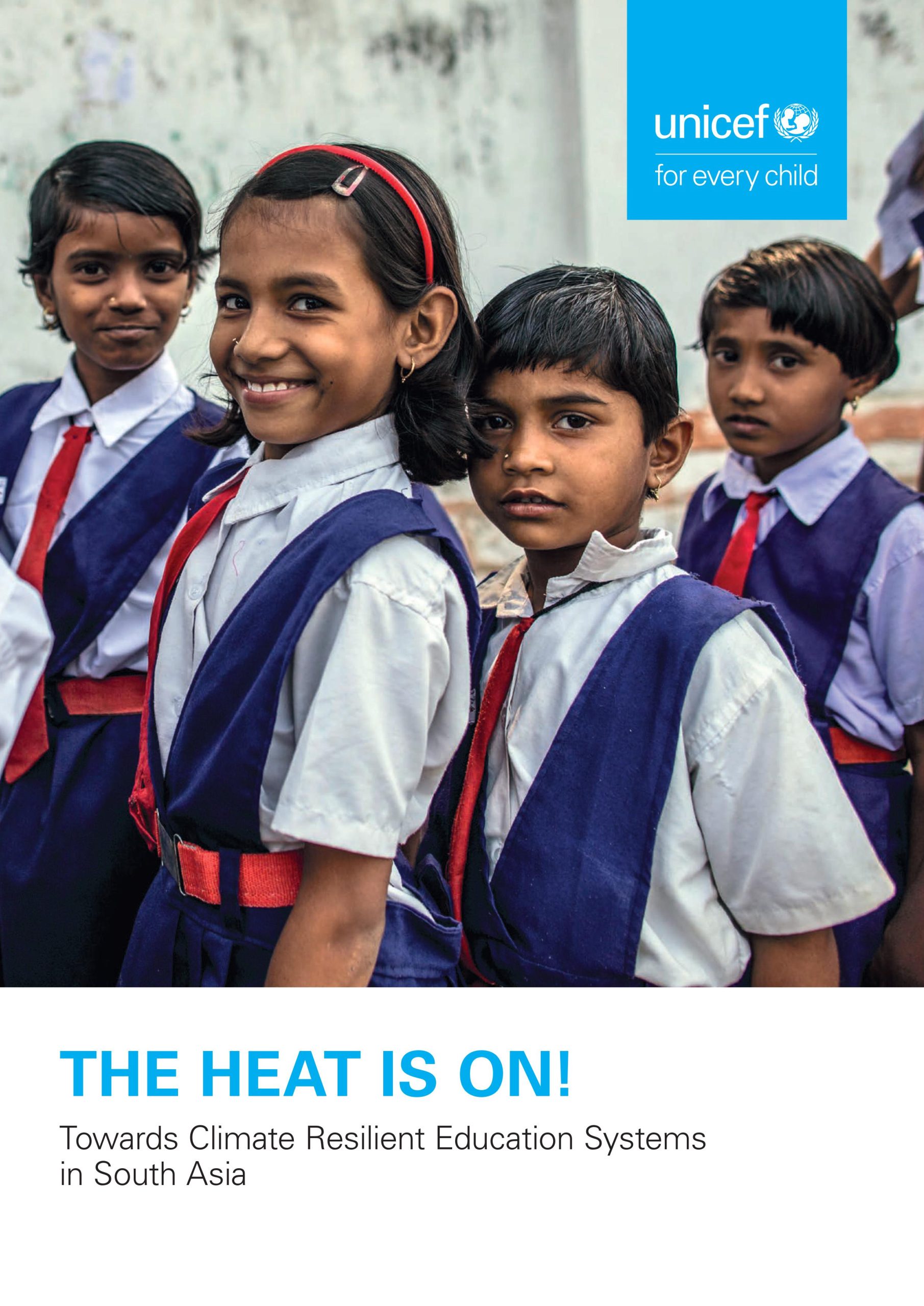 Drawing upon all the country-specific reports produced, the regional synthesis report, The Heat is On! Towards Climate Resilient Education Systems in South Asia highlights overall findings focusing on common trends, gaps and noteworthy practice examples followed by key recommendations for the region covering the above-mentioned seven key education system components.
Drawing upon all the country-specific reports produced, the regional synthesis report, The Heat is On! Towards Climate Resilient Education Systems in South Asia highlights overall findings focusing on common trends, gaps and noteworthy practice examples followed by key recommendations for the region covering the above-mentioned seven key education system components.
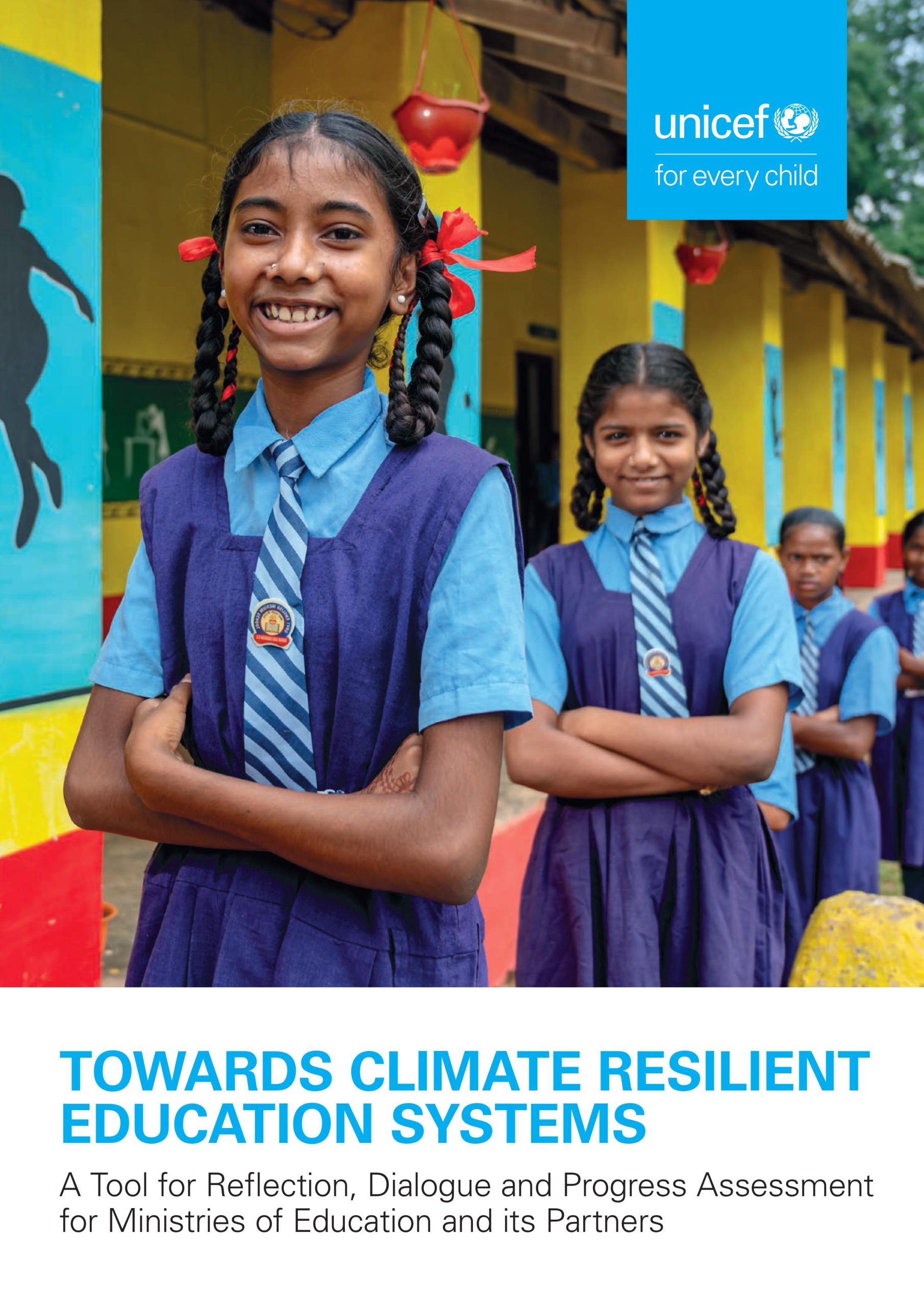 Towards Climate Resilient Education Systems: A Tool for Reflection, Dialogue and Progress Assessment for Ministries of Education and its Partners is designed to raise awareness and promote reflection, dialogue and assessment among national and sub-national level education authorities and their partners about structures and processes aimed at making the education system more climate resilient. The tool includes system-wide standards and progress indicators for climate resilient climate systems covering each of the above-mentioned seven key education system components.
Towards Climate Resilient Education Systems: A Tool for Reflection, Dialogue and Progress Assessment for Ministries of Education and its Partners is designed to raise awareness and promote reflection, dialogue and assessment among national and sub-national level education authorities and their partners about structures and processes aimed at making the education system more climate resilient. The tool includes system-wide standards and progress indicators for climate resilient climate systems covering each of the above-mentioned seven key education system components.
The Rising to the Challenge series produced by a UNICEF ROSA team has explored youth perceptions on climate change and education, Fumiyo making a significant contribution.
The following regional and country-specific reports are available online:
• Rising to the Challenge: Youth Perspectives on Climate Change and Education in South Asia
• Rising to the Challenge: Youth Perspectives on Climate Change and Education in Afghanistan
• Rising to the Challenge: Youth Perspectives on Climate Change and Education in Bangladesh
• Rising to the Challenge: Youth Perspectives on Climate Change and Education in Bhutan
• Rising to the Challenge: Youth Perspectives on Climate Change and Education in India
• Rising to the Challenge: Youth Perspectives on Climate Change and Education in Maldives
• Rising to the Challenge: Youth Perspectives on Climate Change and Education in Nepal
• Rising to the Challenge: Youth Perspectives on Climate Change and Education in Pakistan
• Rising to the Challenge: Youth Perspectives on Climate Change and Education in Sri Lanka

